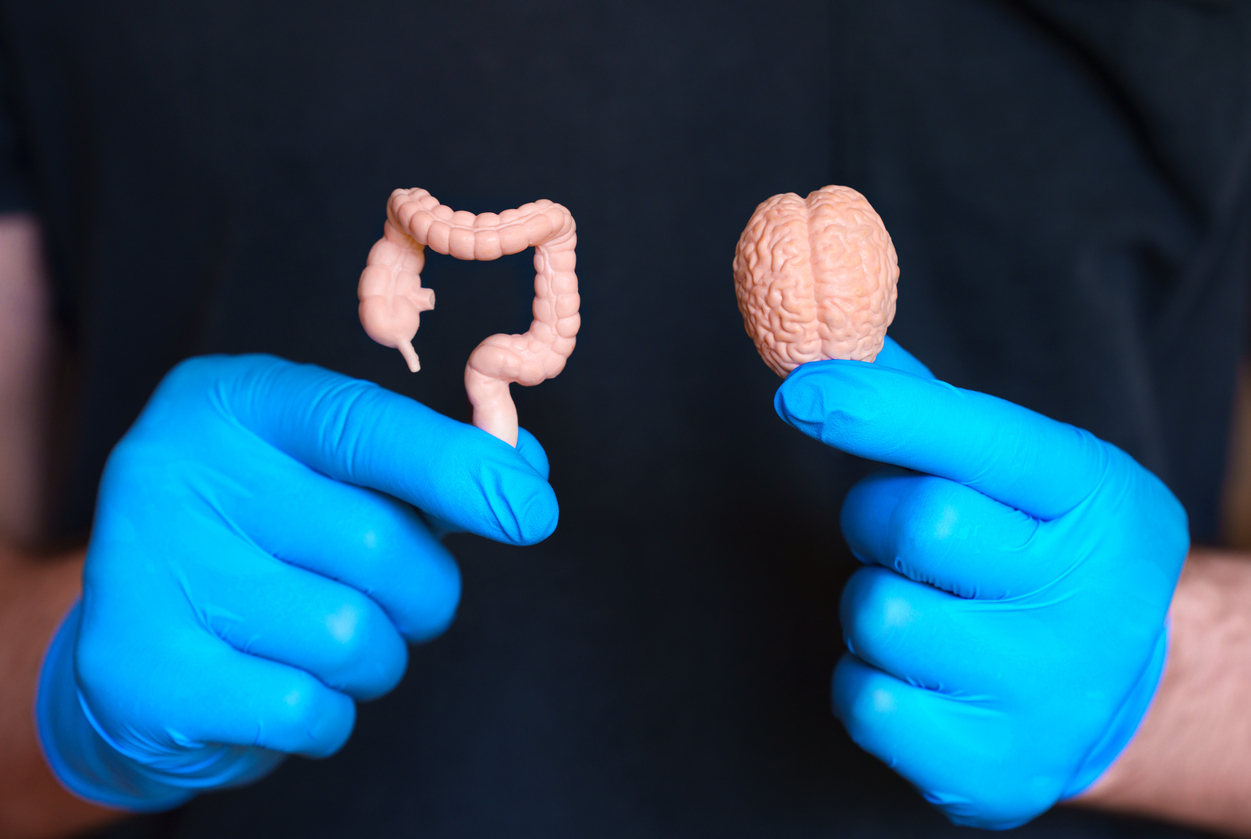2025-08-08
Gut vs. brain: who’s really in charge?
Gastroenterology and Hepatology
By Ana Espino | Published on August 08, 2025 | 3 min read
#Gut #Microbiota #GutBrainAxis
Neurodevelopmental disorders such as autism, depression, and anxiety represent a growing challenge in mental health. Their multifactorial origins—combining genetic, environmental, and immune factors—complicate the development of effective treatments. While traditional neuropsychiatric approaches can be beneficial, they often yield only partial results and struggle to target the deeper mechanisms of brain plasticity.
In this context, one field of research is experiencing spectacular growth: the study of the gut microbiota and its effects on the brain. Once thought to be confined to the digestive tract, this microbial reservoir has now emerged as a central player in the gut-brain axis. It influences functions as diverse as intestinal permeability, neurotransmitter production, immune regulation, and systemic inflammation.
However, despite notable advances, the precise mechanisms by which the microbiota modulates neuronal architecture and activity remain poorly understood. In particular, few studies have been able to demonstrate a direct, functional, and measurable link between specific microbial signals and neuronal circuit plasticity—whether in animal models or humans. This study was designed to explore the molecular, cellular, and metabolic pathways connecting the gut microbiota to brain plasticity, with the aim of identifying new therapeutic targets.
Can a well-tuned microbiota really boost our neurons?
The study relies on germ-free mouse models lacking an intestinal microbiota. These models were used to receive a fecal microbiota transplantation (FMT) from human donors, allowing researchers to observe the direct effect of a complete microbiota on brain development and plasticity. Functional brain imaging and targeted histological analyses were conducted to examine the structural effects of the transplantation, particularly in the hippocampus and prefrontal cortex. Analysis criteria included the expression of synaptic plasticity markers, the integration of GABAergic interneurons, neuronal activation (via Fos+), and the modulation of key receptor and trophic factor expression. Behavioral impact was assessed through anxiety and cognition tests in the animals.
The analyses revealed that certain specific gut bacteria induce the activation of synaptic plasticity genes, promoting the maturation of cortical circuits and the modulation of anxiety-related behavior. At the cellular level, exposure to the enriched microbiota resulted in increased labeling of active neurons (Fos+) and improved integration of GABAergic interneurons. In addition, further data demonstrate that microbial metabolites — notably short-chain fatty acids — directly regulate the expression of neurotrophic factors such as BDNF, and influence the permeability of the blood-brain barrier, supporting a peripheral action with central effects.
Microbiota & brain: a therapeutic connection to watch
Neurodevelopmental disorders remain a major therapeutic challenge due to their multifactorial nature and the lack of clear biological targets. This study aimed to decipher gut microbiota–brain mechanisms to better understand how intestinal signals can remodel neuronal circuits. The results suggest that the gut microbiota actively modulates brain plasticity, with measurable effects on key structures involved in behavior and cognition. These findings pave the way for new therapeutic strategies focused on rebalancing the microbiota to restore impaired brain functions. Future research will need to explore the therapeutic potential of microbiota modulation—through targeted probiotics, controlled fecal transplantation, or nutritional interventions—to treat psychiatric and neurological disorders via the gut-brain pathway.
Read next: ADHD and the gut: an inflammatory duo?
About the author – Ana Espino
PhD in Immunology, specialized in Virology

Last press reviews
Leprosy: a disease still beyond control

By Ana Espino | Published on January 22, 2026 | 3 min read...
Parental alcohol intoxication: the hidden impact on children’s mental health

By Carolina Lima | Published on January 19, 2026 | 3 min read
Obesity: when the kidneys become overwhelmed

By Ana Espino | Published on January 20, 2026 | 3 min read...